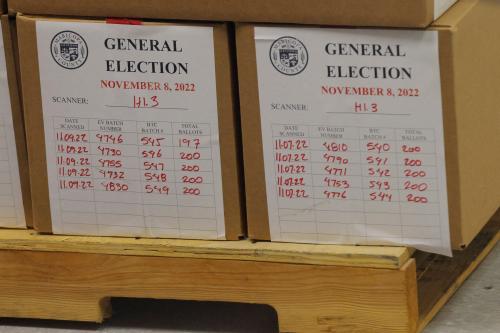Any Australian overseas on March 21 was glued to their internet connection, just as I was in Washington, awaiting the outcome of a key battle in the civil war within the Labor Party. After weeks of senior ministers telling the Australian people to their faces that there was no leadership issue, there had been a spill of the party leadership.
Either these more outspoken ministers were knowingly lying to the Australian people about instability in the Labor government or they were ignorant of what was going on around them. Either way, they should not still be representing the Australian people.
However, the issues run much deeper than honesty. They go to the extreme damage that political uncertainty is doing to Australia’s international reputation and ultimately the Australian economy.
For the week before the spill I had colleague after colleague filing through my office at the Brookings Institution asking questions about what was happening. After 20 years of commuting between Canberra and Washington, the interest in Australia was very different. The questions, however, were worrying.
Why was a country that had withstood the worst of the global financial crisis suddenly switching direction and following the Latin American model?
Why get on that slippery slope of backroom deals, attacking business, giving unions power over economic decision-making and abandoning the path of economic reform when the opposite had seemed to work well for so long? Australia had just become a role model for economic management. Most importantly, why was the government attacking freedom of speech? In Washington, where Congress was in a stalemate, even being unable to put together a budget, the question was why would a prosperous country like Australia squander a position that Americans dreamed of?
Political uncertainty accompanied by bad economic policies can quickly shift an economy from the path to prosperity to a populist but poor economy, such as was a far too common experience in Central and South America over the 20th century.
I found myself, as a proud Australian, on the one hand defending it but on the other hand, as an academic, having to offer an honest analysis of what was going wrong.
It came down to a number of factors. A major problem was minority government – where one party clung to power and sacrificed its very soul to make deals with minor parties and individuals. Declining popular support drove policies that distorted decisions across the economy in order to channel funds back to the base constituency, including the trade union movement. It would have been far cheaper for the economy if the government had paid direct bribes rather than distort economic activity but the latter is harder to trace, thus more popular.
When governing by spin (or propaganda) stops working because the results are not consistent with the never-ending announcement of major policy reform, a politician has no choice but to admit it was an illusion or to attack freedom of speech. This was particularly important where that freedom of speech pointed to glaring problems in the government.
If the independents, the Greens or anyone in the Labor Party have the national interest at heart they need to end the current government and let the people decide who should govern. Another six months of the fiasco will have enormous reputational costs internationally and cause enormous economic damage in Australia.
In the end the Gillard government has had at least two spectacular achievements.
It has made the Whitlam government look like good economic managers and it makes the US Congress look functional after all. Most importantly, it has made my American friends feel more comfortable with the failures of their own political system.
A happier America is good for the world economy.



Commentary
Op-edAustralia’s Banana Republic Political Fiasco is Hurting It Internationally
March 22, 2013